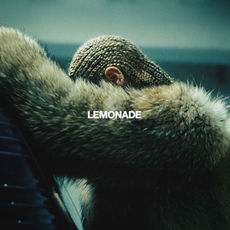Even before its release, Beyoncé's new album was already dividing America. Cowboy Carter, her eighth album, touted as a follow-up to the previous Renaissance, which delved into house music, is a journey into country sounds, but that is not all. It’s a true statement, a reappropriation of music associated with white America but rooted in a black genre, the blues. With this album, Beyoncé, the Texan, questions the place of Black people in this genre and stirs the history of a culture that touches the deepest parts of the American soul, a music marked by the country’s past - migrations, slavery, the Civil War.
With “Texas Hold ‘Em,” a single released in February 2024 and announced during the Super Bowl, Beyoncé has already achieved her goal: to make history. By becoming the first black woman to top the country charts, she has made the minds of Nashville’s narrowest music enthusiasts cringe, already rattled by the success of Lil Nas X a few years ago, and garnered admiration from others. The Super Bowl was the ideal platform for this album’s release, a chance to prove the naysayers wrong.
The black Texan identity claimed by the singer on many tracks, as she had already done on “Formation” in 2016 among others, finds a form of continuity here. “They said my accent was too country / And when the rejection came, they said I wasn’t country enough.” This phrase, sung on the opening track “Ameriican Requiem,” sums up the entire idea of this album: a Texan singer, born to two Southern parents, a recognized artist who has already made sonic forays into country, black, should feel perfectly legitimate to sing country, regardless of what the white right-wingers may say.
Cowboy Carter is one of the albums that most fosters Beyoncé's cult of personality. Because she positions herself as a subject, as an example for society and music, as the one who breaks down barriers, she follows in the footsteps of black artists such as Sister Rosetta Tharpe, Son House, Chuck Berry, or Rick Hamilton, inviting, through the voice of Willie Nelson invited for the occasion, detractors and deniers to move on (“Smoke Hour Willie Nelson”). At the same time, soul and country aren’t a completely new alliance; in the past, Al Green covered Kris Kristofferson (“For The Good Times”) and Willie Nelson (“Funny How Time Slips Away”), James Brown revisited Hank Williams (“Your Cheatin’ Heart”), and in 1965, on Motown, Diana Ross’ Supremes even dedicated an entire album to the genre (The Supremes Sing Country, Western and Pop)!
An eminently political record and a powerful weapon in the cultural war being played out in the USA in recent years. Musically, she nestles into the current trend of multiplying and complicating harmonies, duplicating herself as Caroline Polachek knows how to do, Jacob Collier as well, Queen in its time on “Bohemian Rhapsody,” through mechanical and technological processes that are becoming the norm in the industry. She also cleverly appropriates songs like Dolly Parton’s country icon “Jolene” (which also brings her validation) or the Beatles’ “Blackbird,” a more surprising choice. But the deviations are what we love about Beyoncé.






